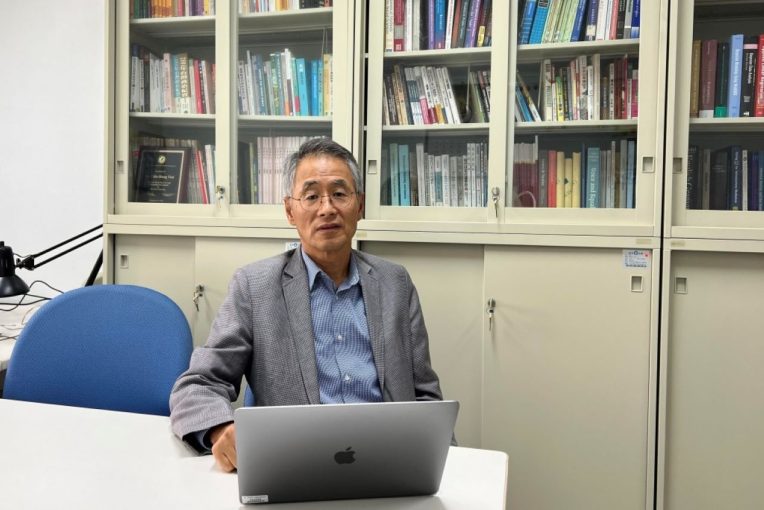Dr. T.Y. Wang, Illinois State University professor emeritus, presented a co-authored paper titled “Fighting Will: Are Taiwanese Citizens willing to Resist China’s Coercion?” at the 2024 American Political Science Association annual conference.
The study examines the effects of citizens’ perceptions of threats on their resolve of resistance of a menacing state.
Indeed, Taiwan is a democracy that has been under constant threat from China for decades. Treating the island as a renegade province, Chinese leaders have vowed to unify the island with the Chinese mainland. To force Taiwanese citizens to accept its “one country, two systems” unification plan, Beijing has relentlessly isolated Taiwan diplomatically and heightened its military pressure on the island. After the Russo-Ukrainian War broke out in February 2022, the shadow of Beijing’s threat on the island has loomed even larger.
Common sense would indicate that weakness invites defiance, and toughness gets submission. To assess this hypothesis, the study employs two waves of panel data collected in Taiwan using both landlines and cell phones. Using a hybrid model, China’s military threats have increased Taiwanese citizens’ support for a strong defense policy. The islanders’ resolve of engaging in a cross-Strait military conflict is contingent on the assessment of the effectiveness of external assistance.
Taiwanese citizens’ conditional resolve of resistance presents a worrying reality. Ultimately, it is upon the islanders themselves to protect their independence and freedom against an aggressive China. The people of Taiwan must have the determination to stand up to China’s coercion for themselves, with or without external help.

